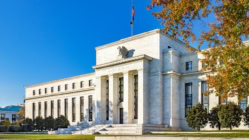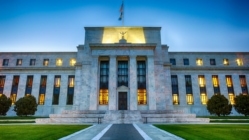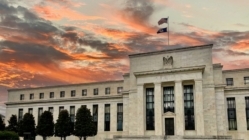“I hope the stock market continues to boom because that means more money for down payments, a willingness to buy no matter what, and more appraisals for me…”
I have a friend in the SF Bay Area who has been appraising for almost 40 years, and he made the above observation to me last week.
He lives in the Oakland/Berkeley area – where housing is off-the-charts expensive and very sensitive to the stock market.
He and I have both seen this play out many times in the Bay Area. It was particularly notable after the Meta/Facebook IPO, when hundreds or even thousands of newly minted millionaires swarmed into the homebuying market.
I share the above story because I was asked by several readers on Monday (in response to this blog: When Will The Stock Market Crash?) – what happens to the real estate and mortgage industries if the stock market crashes?
And … the answer is … it depends. It depends on how much rates fall, how far stocks fall, what segment of the market (high-end or low-end) someone is looking at, and how much inventory is hitting the market.
The Wealth Effect
“The Wealth Effect is a behavioral economic theory suggesting that people spend more as the value of their assets rise. The idea is that consumers feel more financially secure and confident about their wealth when their homes or investment portfolios increase in value. They are made to feel richer, even if their income and fixed costs are the same as before.” This is something we see play out in the Bay Area housing market all the time with respect to the stock market, as the Bay Area is a high-end market with a disproportionate number of people heavily tied to the stock market.
In lower-end markets, however, the wealth effect is largely from home values – and it impacts consumer spending more than homebuying. Because lower-end consumers/buyers are not as influenced by the stock market, a stock market crash will impact lower-end housing markets less than it would in wealthier areas, like the Bay Area, for example.
Interest Rates
When the stock market crashes or even corrects significantly, the giant pool of money (trillions of investment capital) moves out of stocks and into bonds, and that can push down rates significantly (because more demand for bonds increases the price of bonds and that in turn pushes down yields or “interest rates;” this phenomenon overall, when investors move from riskier stocks to safer bonds, is often referred to as a “flight to safety”).
This has the immediate effect of pushing large numbers of mortgage holders into viable refinance territory – so the mortgage industry often does quite well when the stock market corrects.
But, the real estate industry seems to suffer a lag effect from a stock market correction no matter how far rates fall – it is just a matter of how long the effect lasts.
After stocks bottomed out in March of 2020, for example, rates plummeted, and the mortgage industry exploded with refis.
The real estate industry, however, remained stagnant for months, as potential buyers licked their wounds and watched to see how things played out.
I remember getting many emails from very nervous agents and borrowers asking me if I thought the real estate market was going to crash too (several agents chastised me for my optimism too, interestingly).
But, after rates dropped to record lows and after buyers figured out the world was not going to end, the purchase market exploded with activity.
2000 Dotcom Crash
After the dotcom implosion, we saw rates fall and refinances surge, but purchase activity stalled for several months.
2008 Was Bad For Everyone
2008 was unique for many reasons. Rates definitely fell along with stocks all the way until the stock market bottomed in March of 2009.
BUT – refinances did not pick up like they normally do in response to plummeting rates for several reasons: (1) many borrowers – who did not have to verify income previously – simply no longer qualified for loans because lenders started to demand income verifications; (2) many borrowers had no equity; and (3) many of my borrowers still had very low rates because they had excellent adjustable rate mortgages.
Many borrowers also lost their jobs – which also made them unable to qualify for refis.
The purchase market was hit even harder, and the impact lasted for years. This was primarily a result of all the negative press about the real estate market in general, as the market continued to drift south all the way into 2012.
I might add that this is a huge reminder to ignore negative press, as all the media ever does is look for clicks instead of trying to actually inform. Savvy investors well knew the market would come back and many of them made millions (and even billions) of dollars as a result.
Summary
In summary though, stock market crashes tend to be good for the mortgage industry overall, as they result in lower rates and an immediate upswing in refis.
The real estate industry, in contrast, does not fare as well, as crashes usually lead to a lull in activity for a while – and it seems to be worse in higher-end markets.
Real estate, however, comes back if job losses are not too high, if inventory levels do not surge too much, if the stock market levels out, and if rates fall enough to bring enough sidelined buyers back into the market.
Let’s hope for the best of all worlds when the stocks correct the next time – with both the real estate and mortgage industries benefitting. We might actually see that too if rates fall enough, as there are enormous numbers of sidelined buyers and sellers just waiting for rates to fall.
























